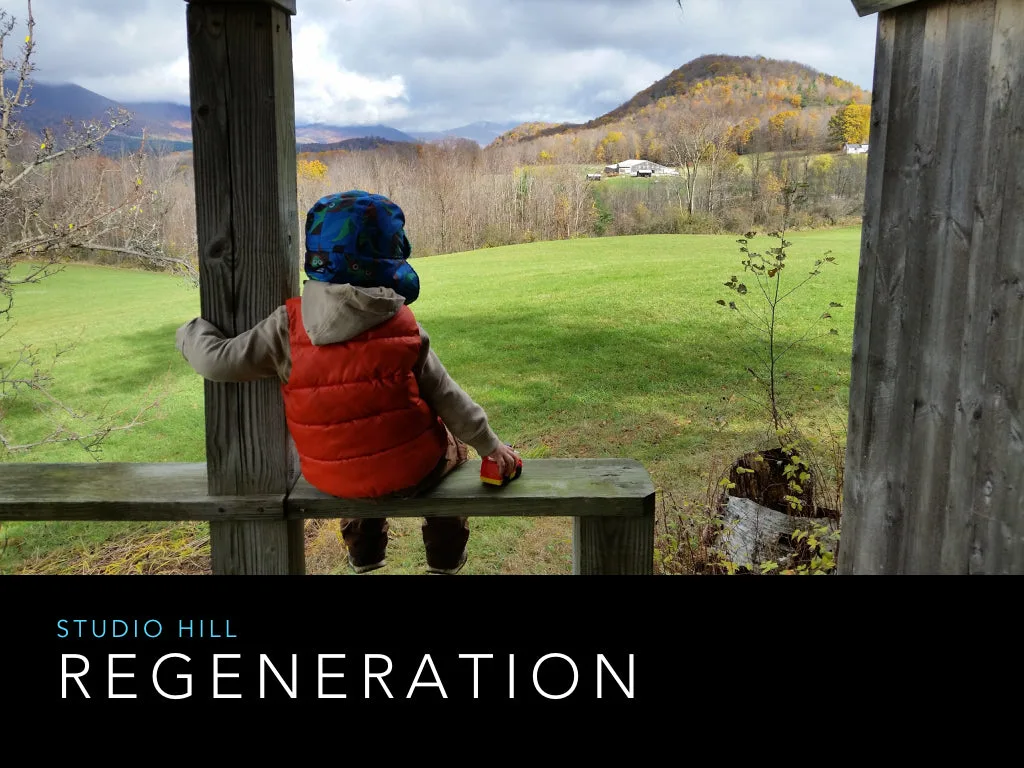I had the pleasure of presenting the story of our farm—from it’s roots as a dairy in the ’30s right up to it’s current iteration as a regenerative farm—at this year’s Vermont Energy & Climate Action Network (VECAN) Conference at the beautiful Lake Morey Resort in Fairlee, Vermont.
I was joined in our workshop by Didi Pershouse of the Soil Carbon Coalition and Andrea Colnes of the Energy Action Network. Our session was put together by Paul Cameron.
Our workshop presented the side of climate change that you don’t often here in today’s discussions: hope and practical action. Didi did a wonderful job explaining and demonstrating why it is vital for us to include soil as an ally in our fight against climate change—carbon sequestration, water retention, etc.
I focused on presenting the practices we employ on our farm to sequester atmospheric carbon into the ground: management-intensive grazing, perennial tree crops, and no-till vegetables.
There are four carbon sinks on the planet: the atmosphere, the ocean, the soil, and the forests. Two of these carbon sinks are full: the atmosphere and the ocean. Two of these carbon sinks are in dire need of carbon (aka: regeneration): the soil and the forests.
To our own detriment, we earthlings only ever talk about one carbon sink: the atmosphere.
In an effort to raise awareness about the other carbon sinks on planet Earth, I gave the following slideshow showing the (reletively) immediate positive effects that can be had by restoring the natural carbon cycles of a piece of land to sequester atmospheric carbon back into the soil and the trees. (Though, because we’re still just starting our perennial tree crop system, it only gets a mention. The main focus in on the soil restoration in our fields using our soil-building team of sheep, chickens, and turkeys.)
It was a wonderful session. I met dozens of wonderful, inspired, and inspiring people. I look forward to the work ahead.
And now, the slideshow:
Now, if you’re still with me. If you’re inspired by what is possible, please find and support your local carbon farmer. Vermont is lucky to have quite a few. Here is a partial list. There are many more, but I don’t know them all. (If you know others, please send them to me through the contact form.)
- Robinson Hill Beef in Montpelier, Vermont
- Vermont Edible Landscapes in Richmond, Vermont
- Cedar Circle Farm in Thetford, Vermont
- Fortunate Ewe Farm in Cambridge, New York
- Mountain Home Farm in Tunbridge, Vermont
- Shire Beef in Vershire, Vermont
- Burelli Farm in Berlin, Vermont























